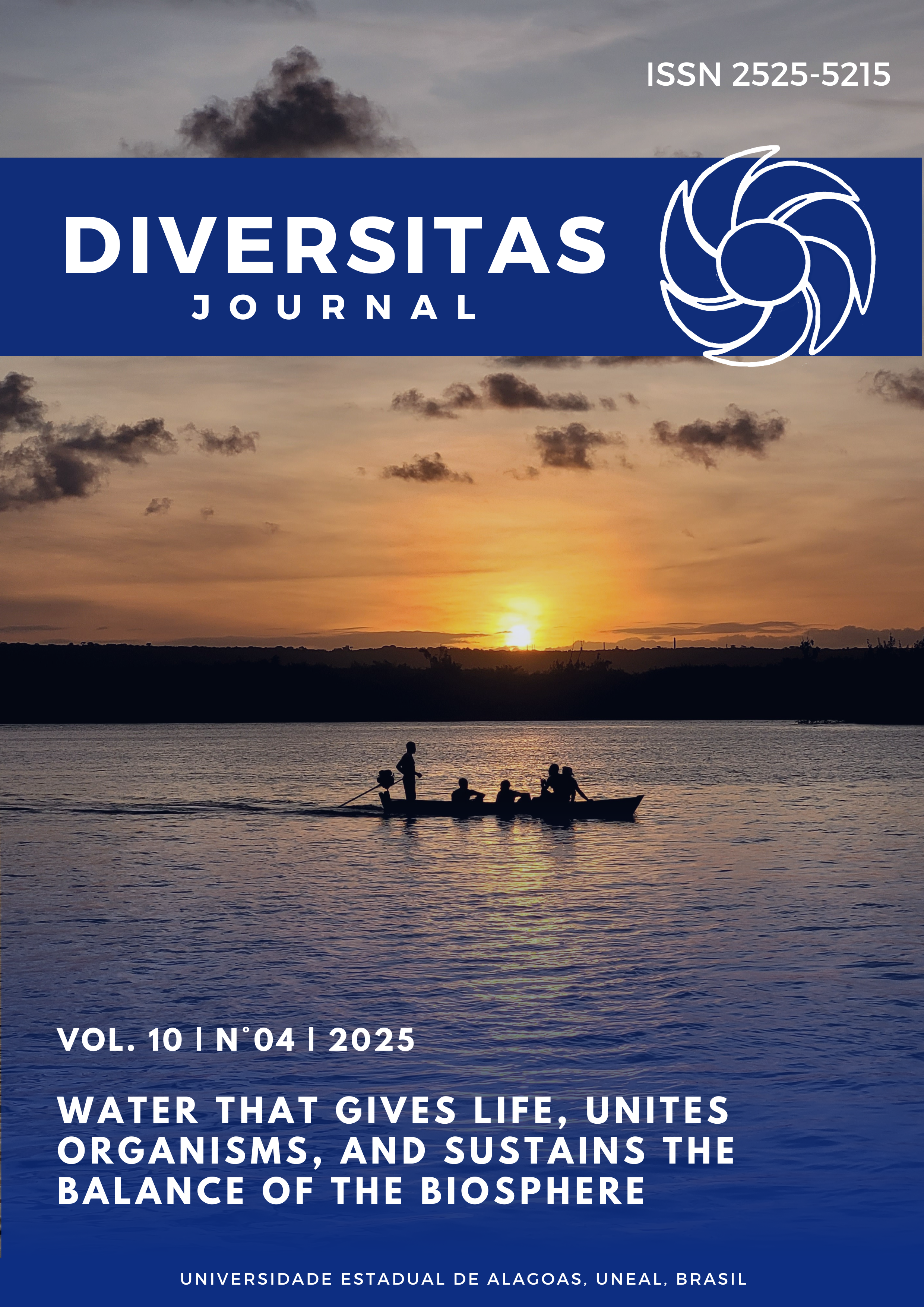Construction of teaching knowledge: narratives of professional experiences
DOI:
https://doi.org/10.48017/dj.v10i4.3582Keywords:
Teaching knowledge, Scientific research, Controversial topicsAbstract
This study aims to analyze the teaching knowledge constructed from teachers' narratives during the development of teaching activities. The approach is both qualitative and narrative. Three letters written by teachers from the Federal Institute of Education, Science, and Technology of Roraima (three with a degree in Chemistry) and a five-question Google Forms questionnaire were used as data sources. The letters, characterized as a narrative genre, present an experience, from a subject's perspective, relevant to professional development. The experiences were related to the three-dimensional space of narrative research. The work demonstrated that narratives are fundamental tools for the teacher development process. It allowed us to understand the construction of teaching knowledge based on experience, teacher training, curricular, and disciplinary aspects. Based on the experiences reported, the letter provided an opportunity to reflect on their pedagogical practices and to redefine teaching practices.
Metrics
References
Brito, A. E. Professores experientes e formação profissional: evocações... narrativas... e trajetórias... Linguagens, Educação e Sociedade, ano. 1, n. 17, p. 29-38, 2007.
Bueno, B. O.; et al. Histórias de vida e autobiografias na formação de professores e profissão docente (Brasil, 1985-2003). Educação e Pesquisa, São Paulo, v.32, n.2, p. 385-410, 2006.
Clandinin, D. J.; Connelly, F. M. Narrative inquiry: experience and story in qualitative research. San Francisco: Jossey-Bass, 2000.
Clandinin, D. J.; Connelly, F. M. Pesquisa narrativa: Experiência e História em Pesquisa Qualitativa. 2. ed. Uberlândia: EDUFU, 2015.
Creswell, J. W. Projeto de pesquisa: métodos qualitativo, quantitativo e misto. Porto Alegre: Artmed, 2007.
Creswell, J. W. Investigação qualitativa e projeto de pesquisa: escolhendo entre cinco abordagens. Porto Alegre, RS: Penso, 2014.
Cunha, R. A. Pesquisa narrativa: uma estratégia investigativa sobre o ser professor.2009. Recuperado de: http://www.ufpi.br/subsiteFiles/ppged/arquivos/files/eventos/evento2009/GT.2/35_Renata%20Cristina%20da%20Cunha.pdf.
Cunha, E.R. Os Saberes docentes ou Sabres dos Professores. Revista Cocar. v.1, n.2- Jul/Dez, 2007. Disponível em: https://periodicos.uepa.br/index.php/cocar/article/view/130.
Freire, P. Pedagogia da autonomia: saberes necessários à prática educativa. São Paulo: Paz e Terra, 2009.
Fiorentini, D.; Castro, F. Tornando-se professor de matemática: o caso de Allan em prática de ensino e estágio supervisionado In: FIORENTINI, D. (Org.). Formação de professores de matemática. Campinas: Mercado de Letras, 2003. p. 121-156.
Flick, U. Introdução à metodologia de pesquisa: um guia para iniciantes. Porto Alegre: Penso, 2013.
Gauthier, C. et al. Por uma teoria da Pedagogia. Ijuí: Unijuí, 1998.
Marquesin, D. Nacarato, A. Narrar a experiência e (trans)formar-se: o caso de uma professora diante do desafio de aprender a ensinar geometria. Interacções, v.7(18), p. 54-75, 2011.
Pimenta, Selma Garrido. Formação de professores: identidade e saberes da docência. In: _____ . (Org.). Saberes pedagógicos e atividade docente. São Paulo: Cortez,1999.
Pineau, G. As histórias de vida em formação: gênese de uma corrente de pesquisa ação- formação existencial. Educação e Pesquisa, v. 32(2), p. 329-346, 2006.
Pinnegar, S.; J. G. Daynes. Locating narrative inquiry historically. In: Clandinin, D. J. Handbook of narrative inquiry: mapping a methodology. Thousand Oaks, London, New Delhi: Sage, 2007.
Polkinghorne, D. E. Narrative configuration in qualitative analysis. Qualitative Studies in Education, v. 8, n. 1, p. 5-23, 1995.
Pimenta, S.G. (Org.). Saberes pedagógicos e atividade docente. São Paulo: Cortez, 2000. Tardif, M. Saberes docentes e formação profissional. Petrópolis: Vozes, 2004.
Tardif, M; Lessard, C.; Lahaye, L. Os professores face ao saber – esboço de uma problemática do saber docente. Teoria & Educação, Porto Alegre, n. 4, 1991.
Downloads
Published
How to Cite
Issue
Section
License
Copyright (c) 2025 Tales Marinho de Araújo, Juliana Barros Carvalho

This work is licensed under a Creative Commons Attribution 4.0 International License.
The Diversitas Journal expresses that the articles are the sole responsibility of the Authors, who are familiar with Brazilian and international legislation.
Articles are peer-reviewed and care should be taken to warn of the possible incidence of plagiarism. However, plagiarism is an indisputable action by the authors.
The violation of copyright is a crime, provided for in article 184 of the Brazilian Penal Code: “Art. 184 Violating copyright and related rights: Penalty - detention, from 3 (three) months to 1 (one) year, or fine. § 1 If the violation consists of total or partial reproduction, for the purpose of direct or indirect profit, by any means or process, of intellectual work, interpretation, performance or phonogram, without the express authorization of the author, the performer, the producer , as the case may be, or whoever represents them: Penalty - imprisonment, from 2 (two) to 4 (four) years, and a fine. ”


















